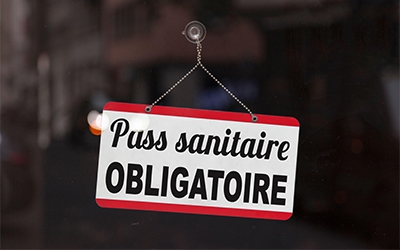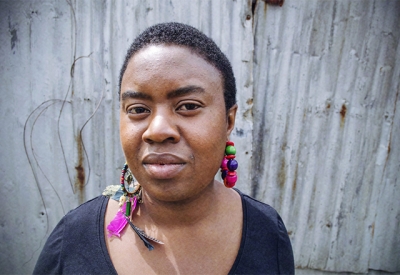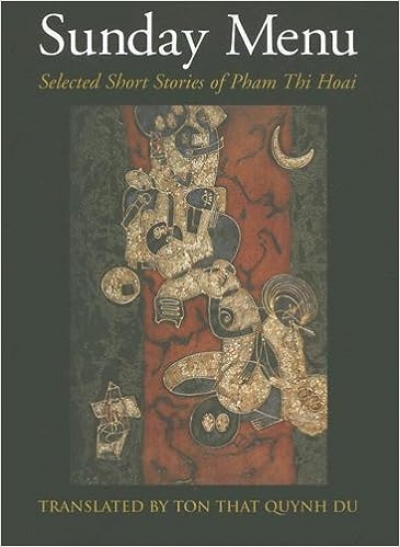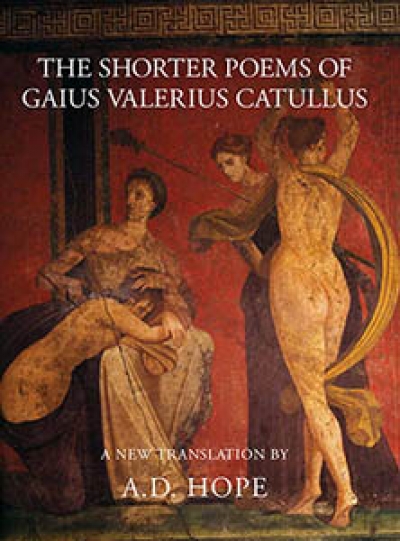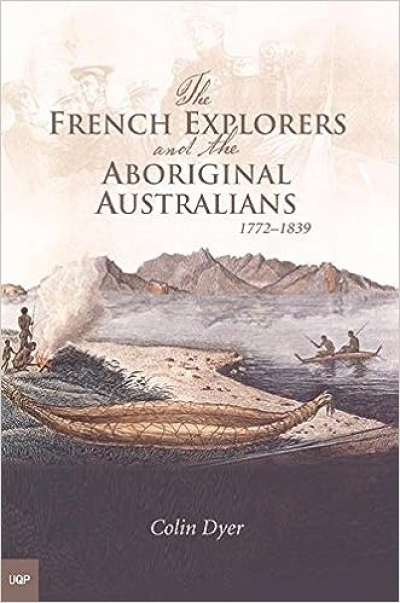Before he left the family, my father worked as a sales representative for a pharmaceutical company. He travelled from chemist to chemist with samples of pills and lotions and pastes in the back of his Valiant station wagon. The best sales representatives visited modern chemists in the city and suburbs. My father had to drive long distances to country chemists who had stocked the same product lines for years and weren’t interested in anything new. As he drank more and more, my father called on fewer and fewer chemists, but the cardboard boxes of samples kept arriving. They no longer fitted in the back of the car, so my father stored them in the corrugated iron shed next to the house. Summer in Perth is very hot. For months and months the bitumen boiled on the roads and we had to use the ends of our T-shirts to open the iron lid of the mailbox, or risk getting burnt. The pharmaceutical samples expanded in the heat of the shed. The lotions and pastes burst their tubes and tubs and seeped through the cardboard boxes. It smelt good in the shed – sweet and clean and surgical. My brother and I went in there often and sat among the sodden boxes as we read our father’s Playboy magazines.
In the last weeks of their marriage, our parents battled out the terms of their separation at the dinner table in between the ice-cream bowls. My mother, small and freckled, wrote lists of their possessions on a Nordette® low dose oral contraceptive notepad. She looked like a teenage girl playing a board game. Nathan and I listened in as we watched television on the other side of the vinyl concertina doors that marked the division between the lounge room and the dining room. We watched MASH. Nathan sang along to the theme song, and for the first time I noticed how high and piping his voice was. And there was something creepy about his pink skin and the cowlick at the front of his fine white hair. I wondered if we hadn’t created a masculine enough environment for our father. I tipped my brother out of his chair and started boxing his arms and chest. He wailed. The doors were dragged open.
‘Kevin, what are you doing?’ my mother said, leaning against the buckled vinyl as if she was too young to stand unsupported. I let Nathan squirm out from underneath me.
‘He’s a sissy,’ I said. ‘He sings like a girl. Tell him he’s not allowed to sing.’
She looked from me to Nathan and back to me again; then she forced her eyes open wide so they boggled with exasperation.
The playmates in the Playboy magazines are always smiling. Or, if they aren’t smiling they have a gasping, pained expression as if they’ve just stood on a drawing pin. None of them have someone special in their lives at this time, but with the right man they can be hot to handle. They like the feeling of silk against their bare skin, and they appreciate the outdoors and candle-lit dinners. Miss July says she likes the heat (she’s from Queensland), but on the next page she says she would like to make love in the snow. This contradiction seems to have slipped past the Playboy editor. I wonder if this is a concern to other readers? The skin of the playmates can be matched to the samples of different timber stains that we have in woodwork class. The brunettes are teak or mahogany, the blondes are stained pine if they have a tan, or unstained pine if they are from Sweden, Finland, Denmark, or the Netherlands. The playmates don’t have veins showing through their skin – it is just the one colour – like a pelt. And none of them have freckles or bits of hardened sleep in the corner of their eyes like tiny potatoes.
My father agreed to take only his personal items; his clothes, shoes, records, golf clubs, and alcohol. On the morning that he left I stood in the driveway and waved him off. My mother and brother watched from the kitchen window. My father’s work shirts hung in rows down each side of the rear of the station wagon. It looked neat – like it had been designed for that purpose – like a gentleman’s wardrobe on wheels. My father waved his forearm out of the window as he drove off. Just as he rounded the bend in the road and the car moved out of sight, he tooted his horn. I stood and watched for a few minutes. When I finally turned to walk away, I noticed my mother and brother were still looking out of the kitchen window; but now they were looking at me.
My father married my mother when she was eighteen, because he had made her pregnant. It was just the one time; the one date. My mother had a job interview at the shoe shop where my father was working. She didn’t get the job, but my father, the junior sales clerk, asked her out. When my brother and I were little we often asked our father to tell us the story of how he met our mother. He always said the same thing. He said that our mother had the best pair of knockers he’d ever seen. For many years my brother and I believed that knockers were a brand of shoe. It was through reading the Playboy magazines hidden among the boxes of pharmaceutical samples in the shed that I realised my mistake. And although we never spoke of it, I believe that Nathan, who is three years younger than me, was also enlightened this way.
I heard my father’s car in the driveway a few days after he left. My mother was at her boot-scooting class and Nathan had gone along to watch. The Valiant was empty and I wanted to ask my father where he was living, where all his shirts were hanging now, but it felt too intrusive. My father called me over to help him load the stereo, the fan, a china dinner service that had never been out of its box, an esky, and a bodybuilding machine into the back of his car. I knew that my mother would be angry, but I felt flattered my father had asked me for help with the lifting. No man ever refused to help another man lift.
A week later, my father came back again and tried to remove some of the boxes of pharmaceutical samples from the shed. My mother rushed out of the house as soon as she saw his car. She shrieked at him and tried to block the doorway to the shed. My father pushed past her. Nathan started to whimper. I stood near the tailgate of the Valiant – I hoped that my father would think I was trying to help him, and that my mother would think I was trying to stop him. My mother saw one of our neighbours working in his garden over the fence and she called out to him. She insisted that he help her, saying that my father was trying to steal her property. Ron looked uncomfortable, but he came and leant against the fence, holding his small soil-stained trowel in his hand.
‘G’day, Ron,’ my father said, cheerfully, as he carried a stack of cardboard boxes towards the car. My mother rushed at him then, and they grappled with the boxes. Some of the boxes disintegrated as my mother and father snatched at them. Ron banged his trowel against the fence palings to signal his disapproval. I was embarrassed for all of us. It was unseemly. The pieces of soft cardboard on the ground looked dirty and cheap. The value of us – the whole family enterprise – seemed to be symbolised by them.
My father never came to the house again. He took a job interstate. The telephone calls became less and less frequent, then they stopped. The first year, with the anticipation that he might write or ring on our birthdays or at Christmas, was confusing, but things settled down after that.
Because my father left Western Australia and my mother didn’t know where he was working, she was unable to have any maintenance payments taken out of his wages. Money was tight. When the windscreen of the Torana shattered, my mother covered it in gladwrap and kept driving. She took a job with the local real estate agent. She didn’t have her licence, so she answered the telephone and wrote down messages. On the weekends the owner of the agency let her put up directional signs in the streets surrounding houses they had listed for sale. He told her it was good experience and would help her when she sat the exam for her estate agent’s licence.
One Saturday morning Nathan and I went along to help our mother with the signs. The signs were metal; they attached to a steel stake with wire. There was a rubber mallet to bang the steel stakes into the ground. The house for sale was on a recent estate behind the tip. A new road had been built to get into the estate so that the residents didn’t have to go past the tip, but everyone knew it was there. In summer the tip stank as the rubbish decayed in the heat. It was better in winter when people lit fires there and the smoke was rich and fruity. We parked on the side of the road and tried to hammer the first stake into the ground. It only went in a few inches before it hit rock. We took turns. Each of us thought the other wasn’t doing it right, until we had tried for ourselves. As I hit the stake with the mallet and the force reverberated, not into the ground, but back up my arm and shoulder, I knew we were no longer a family. A woman and two boys is not a family. We had no muscle. We had no way of breaking through.
It rained overnight. My mother insisted that we go back and try to erect the signs the next day, as the ground would be softer. With my father gone I had to sit next to my mother in the front seat of the car as she drove. She was wearing Nathan’s old raincoat from scouts and a red gingham headscarf over her hair. I told her that it would suit her better if she tied it under her throat like the Queen. ‘This way,’ I said, as I turned in the seat and knotted it under her chin, ‘is more dignified.’ I was already a foot taller than her and I was worried someone from school might see us and think she was my girlfriend, instead of my mother. My brother sat in the back of the car while my mother swung at the stake with the mallet. The rain had muddied the surface of the ground, but barely soaked in at all. It was still hard going. It started to drizzle. I held the Lorazepam® high-potency benzodiazepine golf umbrella over my mother’s head with my arm outstretched so I didn’t have to stand too close to her. If anyone drove past and saw us I hoped they would think I was more in the role of caddy than lover.
Increasingly, when I thought about my father, my memories of him were not so much of actual events or incidents, but of the things he left behind. My father had a moustache and one of his eyes was sleepy. The sleepy eye was more noticeable in photographs than in real life. Not many adults have a sleepy eye – or perhaps it’s difficult to tell because so many of them wear glasses. There was a framed photograph of my parents on their wedding day next to the telephone in the hall. My mother is wearing a too-big navy suit in the photograph. Her cheeks are uneven and she looks seasick. My father seems happier – his moustache, if not his mouth, is smiling. His eyes are downcast though. He is looking at the most striking thing in the photograph – his massive white wrists. My father told me the story of the photograph one night when he’d been drinking and my mother wouldn’t let him in the house. He climbed through my window and spent the night on the floor next to my bed. The story was this: a few months after the date with my mother, my father had another date. This date was with a girl he really liked, a girl he wanted to marry. He paid a friend who worked in a garage to give him the keys to a sports car for the evening so he could take the first rate girl out. Showing off, he took a corner too fast and crashed into a brick wall. The girl was unhurt, but my father broke both of his wrists. Because of this he was wearing plaster casts on his wrists when he married my mother a couple of months later. The casts give my father a serious and masculine appearance in the wedding photograph. The weight of them on his wrists makes his arms look heavy, almost burdened, with muscle. And the thickness and hardness of the casts straining at his shirt cuffs is menacing. He doesn’t look like a sales clerk, he looks like a boxer.
Underneath the photograph, in the drawer of the hall table, there are three boxes of white biros with blue writing on them – Aldactone® spironolactone easy to swallow tablets. One afternoon after school I try all of the biros on the back cover of the phone book. Out of fifty-four biros, only seven work.
Because my mother goes on a few dates with one of the real estate agents and it doesn’t work out, she has to leave her job. She goes on benefits and is made to do courses. Her course at the local neighbourhood house is called ‘Starting Again for the Divorced and Separated’. My mother does her homework in her My New Life Workbook in front of the television. When she gets up to go to the toilet during a commercial break I take a look at what she’s written. Under, ‘What motivates me?’ she has answered, ‘flowers’.
My mother asks me and Nathan to go with her to a Parents without Partners picnic. It’s at an animal nursery. I can tell that Nathan doesn’t mind the sound of it, that he would like to pet the lambs and the rabbits. But I say we are too old, that it’s dumb, and by holding Nathan’s eye for long enough I get him to agree. My mother goes without us. She meets a man who works on a prawn trawler in the Gulf of Carpentaria. The man has a daughter whom he sees sometimes when he’s in town. My mother has a lot of late-night telephone conversations with the man on the prawn trawler. She has to say ‘over’ when she finishes what she is saying, because he is using a radio telephone. When the prawn season finishes, my mother’s new boyfriend moves in with us.
I have become so familiar with the playmates in my father’s Playboy magazines that they don’t work anymore, so I read the articles. In Playboy forum, men write in and describe how they meet women in ordinary places; the petrol station, the laundromat or the video library, and they have sex with them against the bowser, the dryers, or on the counter. When this happens a friend of the woman with different coloured hair often arrives unexpectedly and has no hesitation joining in. And if the first woman at the petrol station, the laundromat, or the video library has small breasts, her friend will always have large breasts – or the other way around. After I’ve read all of the articles I look at the ads and the fashion pages and choose things. I choose Rigs Pants, Lord Jim Bionic Hair Tonic, Manskins jocks, Laredo heeled cowboy boots with a fancy shaft, and Aramis Devin aftershave – the world’s first great sporting fragrance for men. I think I hear someone outside, but it’s just a pair of dusty boxing gloves that hang from a nail on the back door of the shed. When it’s windy the gloves bang into each other. I can no longer remember if the boxing gloves belonged to my father, or if they were in the shed before we came to live here.
Nathan joins the gymnastics team at school and I get a checkout job on Thursday nights and Saturday mornings. Nathan’s legs are bowed and he doesn’t have any strength in his upper arms. When he does his exercises his shorts ride up and his orange jocks show. The gymnastics teacher says his vaulting technique is poor. He tells me that Nathan doesn’t look like he’s trying to jump over the horse, more like he’s trying to fuck it. He tells me this because I am standing next to my mother in the school quadrangle on open day where we are watching a display of gymnastics. I am wearing my Coles New World tie and the gymnastics teacher must think I am my mother’s boyfriend. Nathan is best at the type of gymnastics where he has to throw a stick or play with a ball – a type of gymnastics that might have been invented by puppies. Because Nathan’s wrists are weak he wears special white tape around them. He brings some of the tape home – he says the gymnastics teacher gave it to him, but I doubt it. Nathan wears the tape on his wrists every day during the school holidays. When the tape gets grubby he puts more over the top until his wrists are so thick he can’t hold his fork properly. When he’s talking he throws his hands around in the air and watches them. This is something I’ve seen my mother do when she has just changed her nail polish.
By over-ringing the total on a number of small sales, it is safe to take around five dollars out of the till at work each week. It’s better not to take an even amount. Four dollars thirty-nine is good. Playboy magazine costs two dollars. I don’t buy it every month. I buy it when the cover looks like it will go with the covers of my father’s magazines already in the shed.
My mother takes her wedding photograph out of the frame on the hall table and replaces it with a picture of herself and her new boyfriend on a fishing trip. The photograph shows my mother and Wayne standing on a jetty together, each holding a fishing line with a white fish dangling from it. My mother’s face is puffy with the strain of holding the fish aloft. Her lips are open and stretched tight, just like the fishes’ lips. If it were a group portrait you would have said my mother and the fish were related. My parents’ wedding photograph is relegated to a drawer in the hall table where the envelopes and takeaway menus are kept. The photograph rises to the surface every time I search for a piece of paper to take down a message. It is crumpled now and smells of soy sauce.
There is a letter in the latest Playboy that I think might be from my father. In the letter a man describes an encounter he has with a woman at a bodybuilding centre. The man describes himself as well built, with a full head of hair and a moustache. He is lifting weights on his own late one night when a beautiful girl comes in to clean the equipment.
The girl is wearing a short pink cleaner’s dress which fits poorly across the chest. Because her washing machine has broken down and she is poor and has no change for the laundromat, she is not wearing any underpants. The girl says hello to the man shyly and starts cleaning. The man is sweating heavily – sweat is running off his biceps like he’s standing under a waterfall. The man notices that the girl is watching him. He decides to do a few rounds with the punching bag. He calls the girl (she has been bent over rubbing the weight lifting bars with a cloth), and asks her to help him lace up his boxing gloves. As soon as the girl gets close to the man, she is intoxicated by his sweat. She ties the laces of the boxing gloves together so he is her prisoner. She tells the man to sit down on the bench press, then she takes her dress off and rides him like he’s a bucking bronco.
The letter is signed, Hot and Sweaty, Tweed Heads. I hope that it is my father’s letter. I hope the girl in the story is the same girl my father took out on a date when he broke his wrists, and when she finally takes off his boxing gloves and they hold hands, I hope they are not joined by one of her friends with different-coloured hair. I place the magazine on the top of the pile so Nathan will read it too. I hope Nathan will think that our father is happy. I want Nathan to understand that our mother was never going to make things work with our father. She was the wrong girl. And because she was the wrong girl, Nathan and I were the wrong sons. It could never have been any other way.
Carrie Tiffany and Gregory Day were the joint winners of the 2011 ABR Elizabeth Jolley Short Story Prize.
Click here for more information about past winners of the Jolley Prize.






















